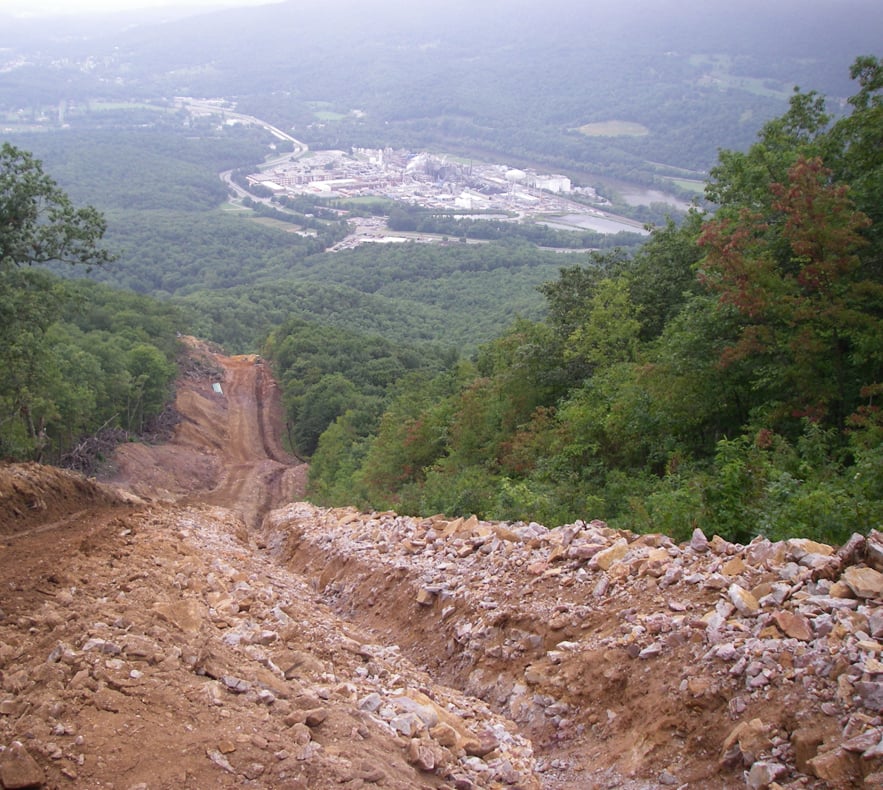More controversy over the proposed Atlantic Coast Pipeline, a project that would carry fracked gas across West Virginia, Virginia, and North Carolina, erupted this week.
Blackburn Consulting Services released a report claiming that Dominion (the pipeline’s primary developer) is underestimating the risk of landslides in steep mountainous parts of Nelson County, Va.
The soil evaluators were hired by Friends of Nelson, Wintergreen Property Owners, and Friends of Wintergreen, to evaluate the adequacy of the geological information submitted to the Federal Energy Regulatory Committee by Dominion.
After creating predictive maps identifying steep areas with high debris flow in Nelson County, Blackburn spent three days surveying seventeen sites along the proposed pipeline route. Additionally, Blackburn reviewed documents submitted to the Federal Energy Regulatory Committee by Dominion on soil types, slope stability, and erodibility.
Blackburn’s scientists claim the Dominion has been using inadequate data sets to assess erosion and landslide potential and that there is indeed a high risk of such geohazards in the Nelson County area. In turn, the report states that Dominion has not adequately addressed how they plan to mitigate potential hazards that could put people, property, and water at risk.
A Friends of Nelson County advocate Randy Whiting wrote, “Given the types of soils that the soil/scientists observed during their site work on Nelson’s steep slopes, it is obvious that the erosion potential of these slopes is much higher than Dominion is reporting. Considering the anticipated difficulties Dominion is expected to have with revegetating the pipeline right-of-way—both during and after construction—it becomes apparent that combining Nelson’s soils, slopes, and this proposed pipeline is a recipe for disaster.”
Friends of Nelson County is insisting that Dominion update topographic and soil studies and widen the area of study to buffer zones beyond the direct pipeline corridor.
The advocacy group is also calling on the Federal Energy Regulatory Committee to withdraw the pipeline’s Draft Environmental Impact Statement until Dominion takes another look at such issues.
Dominion responded with a press release stating “We’ve performed an extensive analysis of all potential geohazards for this project, far more extensive than the limited analysis in this report. Based on that analysis we’ve developed robust programs that will protect against slope instability, landslides, and other potential impacts during construction.”
“Nothing is more important to us than protecting the natural resources of every community,” said Dominion.








